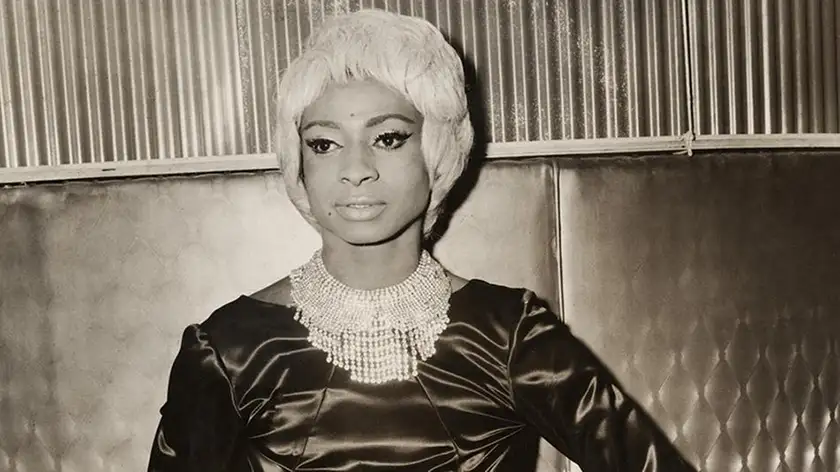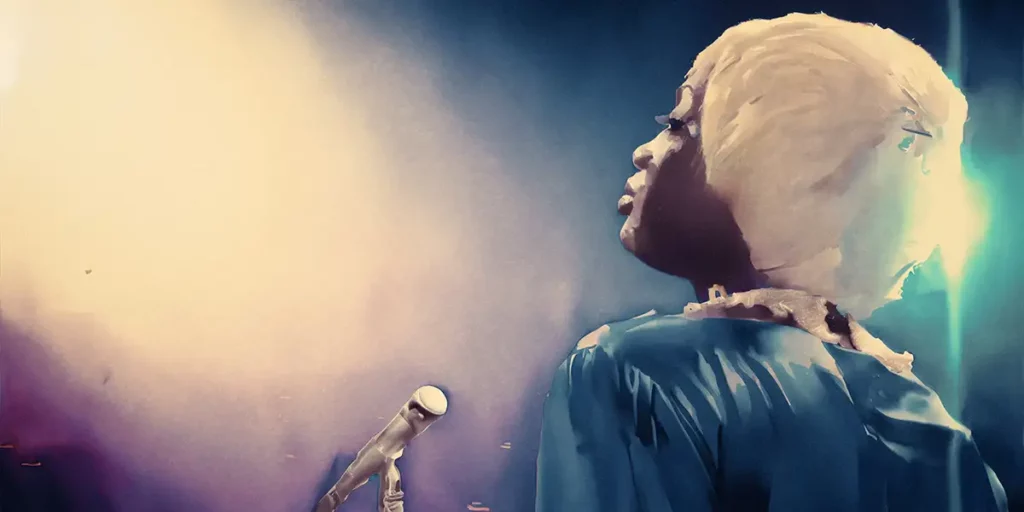Any Other Way: The Jackie Shane Story posthumously gives the titular unsung icon of the 60s’ R&B movement the flowers she always deserved.
Jackie Shane was a one-of-a-kind artist. The R&B Black trans singer was on the rise in the 1960s. During her time in the Montreal club circuit, she opened for the likes of Etta James, The Drifters and The Temptations. At the height of her fame, she turned down performance opportunities on The Ed Sullivan Show because they wouldn’t allow her to wear makeup and America Bandstand because they wouldn’t allow Black children in the audience of their shows. She even helped her close friend, Little Richard, prepare his hair pieces (yes, pieces: she said they had to use two because his head was so big) for his Nashville performances. Why, then, did she never shoot into the same stratosphere of fame as her peers? Because in 1971 she disappeared from the spotlight completely.
In Any Other Way: The Jackie Shane Story, Michael Mabbott & Lucah Rosenberg-Lee reveal the untold story of one of the greatest soul singers who went the past 50 years virtually unknown. Through readings from her autobiography and conversations with the legend herself, the documentary pieces together the story of Jackie Shane’s life, attempting to answer the lingering question of what happened to this rising star who refused to compromise who she was to fit the mold.
The film interviews family members of Jackie, the majority of whom never knew of Jackie’s existence before being notified they had inherited her belongings after she had passed. The movie also enlists the help of multiple Black, queer performers in order to read the words Jackie wrote about her experience in the spotlight, and her ultimate decision to leave it behind in favor of living her authentic life without parameters on how she could express herself. In the absence of a visual representation of Jackie herself (in later years she had become a recluse, reluctant to let anyone see her), the film uses lively animation, real-life photographs and personal memorabilia to paint the picture of who this woman really was and why she walked away from a life of fame.
Any Other Way not only honors the memory of who Jackie Shane was and why she was such an important figure in feminist, queer and Black history, but also introduces an entirely new generation to her legacy.

The film lets audiences know, from the very opening scene, who Jackie Shane was and why she was an utterly magnetic figure in the soul music movement. The lively animation depicting her performances perfectly matches the woman the film centers around, as her music and voice glide throughout the film, guiding the audience through the story of her life. The film’s inclusion of other Black, queer performers reciting the words she wrote about her own life story is an ode to the path Jackie paved for others like her. She refused to back down in the way she expressed herself and blazed a path to allow others like her into the entertainment and musical realm.
The documentary has so many golden moments of conversation with Jackie that show you exactly the kind of woman she was. She was wildly observant and curious of the people around her. She didn’t mind that people came to her shows to look at her, most had never seen someone like her before, because it got them in the room and gave her a chance to connect with them. Performing was her way of showing the world who she was and allowing others to see her in a light that made them understand her identity. When she was asked to compromise this in pursuit of fame on a larger scale, she didn’t think twice about her options as the film repeatedly shows the most important thing to her was being honest about who she was.
In many ways, Any Other Way completes the mission that Jackie set out on all those decades ago: connecting with the people who heard her voice. In one of the scenes where Jackie is speaking in conversation with the filmmakers, she explains that she wanted to play for the people and audiences that she loved to play for not large crowds she had no chance to connect with. The film shows that Jackie wasn’t connected to the concept of success or how far her singing career could go, that came as a thrilling and welcomed surprise to her. Jackie connected with the idea that she could move people with her performances.
This documentary stands as one last opportunity for Jackie to connect with people who could learn from her story. Any Other Way represents Jackie’s legacy in a beautifully nuanced way, going beyond the binary of an autobiography or documentary and honoring her devotion to connecting to those who came to see her. The film goes beyond the difficulties she faced in her life in pursuit of living authentically, and she did face many of them, rather it shows the joy and comfort she brought to the lives of those who knew. But most importantly, Any Other Way brings the voice of Jackie Shane back to the world at a time it seems to need it most.
Any Other Way will be screened at SXSW on March 9-12, 2024. Read our SXSW reviews and our list of films to watch at SXSW 2024!

